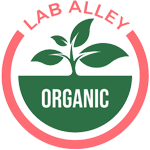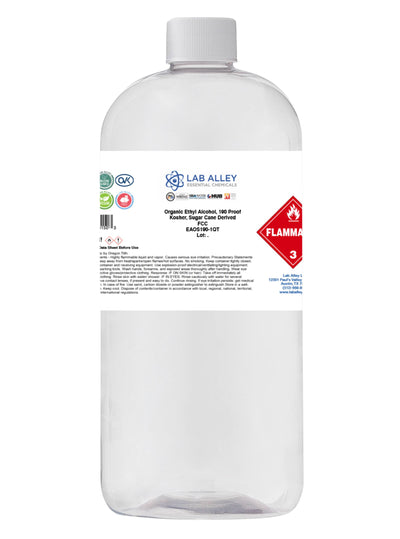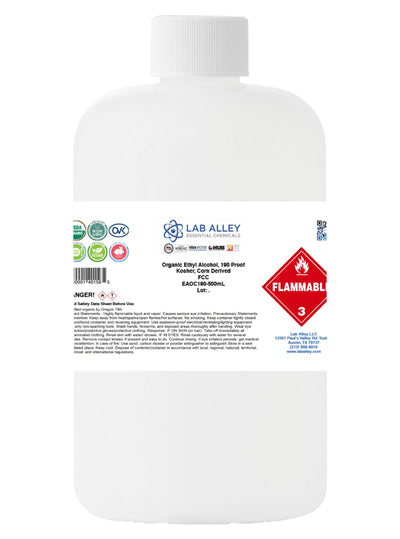Lab Alley Superior Organic Chemical Products
Lab Alley is the leading supplier of Organic chemicals to the CBD/Hemp, Food & Beverage, and other industries. Our Organic product portfolio currently includes ethyl alcohol and MCT Oil in multiple concentrations and packaging sizes. We are constantly striving to improve and expand our Organic chemical product offerings.

The Lab Alley Organic Chemical Product Portfolio
Organic vegan ethanol is used in skin care products, medicine production, and the perfume industry. Another use of organic vegan ethyl alcohol includes liquors. In fact, many distilled spirits are vegan.
View Product >Undenatured certified organic corn alcohol 190 proof is used in manufacturing perfumes, preparation of essences, flavorings, medicines, drugs, disinfectants, and tinctures. View Product >
Undenatured certified organic corn alcohol 200 proof is used for distillation in laboratories for research, disinfectants, herbal tincutures, and the perfume and personal care industries.
View Product >MCT Oil is a highly concentrated source of medium-chain triglycerides (MCT). MCT is found in various oils, such as palm and coconut, and is used for cooking, weight loss, hair growth, ketosis, and more.
View Product >What Is An Organic Chemical?

An Organic Chemical designation signifies that the chemical is derived from a USDA Certified organically grown material, such as corn, sugar cane, or coconuts.
- Source: The chemicals should be derived from natural and renewable resources. Synthetic or petroleum-based compounds are generally excluded.
- Manufacturing processes: Organic chemicals should be produced using methods that minimize environmental impact, such as avoiding the use of genetically modified organisms (GMOs), ionizing radiation, or harsh synthetic solvents.
- Purity: Certified organic chemicals should be free from contaminants, including pesticides, herbicides, and other harmful substances. The use of certain synthetic additives or preservatives may also be restricted.
- Documentation and traceability: There should be a complete record of the chemical's origin, production methods, and ingredients used. This documentation helps ensure transparency and accountability throughout the supply chain.






